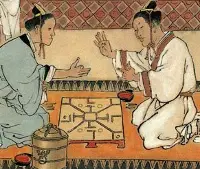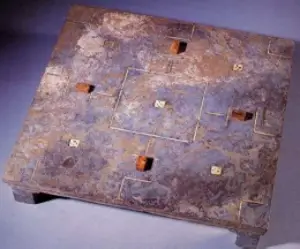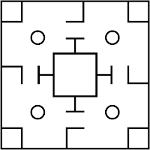|
Long-lost Rules of Ancient Chinese Board Game Found
March 13, 2019 Archaeologists have found the long-lost rules to an ancient Chinese board game. The game, known as liubo is thought to be the ancestor of Chinese chess. The rules were found on a group of more than 5,200 bamboo slips excavated from the tomb of the Marquis of Haihun, near Nanchang in the eastern province of Jiangxi. Officials at Peking University's institute of excavated text research confirmed that more than 1,000 of the slips of bamboo contained reference to the rules of the ancient game. 
Zhu Fenghan, director of the institute, said that it was the first time that the rules had been found. Historians know about the game from mentions in ancient texts. Pieces and boards for the game have turned up in several tombs dating to the Han Dynasty (202 B.C.—A.D. 220), when the game was very popular and played by both men and women. The game is thought to be much older, based on texts and inscriptions found elsewhere, including a mention in the famous Analects of Confucius. The subsequent rise of the game Go and the backgammon ancestor Nard are thought to have contributed to the decline in popularity of Liubo. The rules are thought to have disappeared during the rule of a later dynasty, the Tang (618–907). 
Liubo literally means "six sticks" and is a two-player board game. The sticks are thought to have functioned as dice, with a player throwing them in order to determine how to move one of up to six game pieces (five pawns and one king) that each player had on the board. 
The board is thought to have been square, with eight rows and columns or nine rows and columns. The board was thought to have been further subdivided in patterns that allowed or disallowed movement of the pieces. The game is thought to have evolved to involve using dice. Findings at a tomb in 2014 would seem to corroborate this. The excavation at the Nanchang-area tomb began in 2011 and has unearthed more than 10,000 artifacts. Liubo is thought to be an ancestor of Xiangqi, or Chinese chess, one of the world's most popular board games even today. |
Social Studies for Kids |
Social Studies for Kids
copyright 2002–2024
David White




